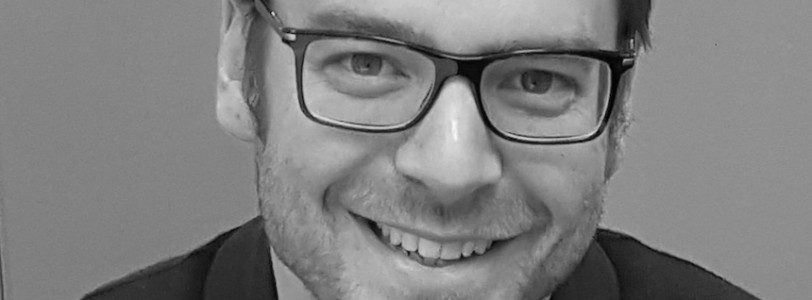Could you first introduce yourself to the reader?
Hello, I’m Ben Hicks and I’m Executive Director of the Guardian Foundation
What is The Guardian Foundation?
We are an independent charity, based at the Guardian newspaper, which supports media under threat, promotes diversity in the media and empowers children and young people to engage with the news. Our activities include the Scott Trust bursary scheme, News literacy programmes, the Guardian Archive, Guardian Exhibitions and an international capacity building programme - currently focused on supporting Turkish and Syrian journalists.
How long have you worked at The Guardian Foundation?
I’ve been leading the charity for three-and-a-half years. Before that I managed the Guardian’s funding partnerships with foundations. And before that all sorts of different stuff.
What is the best part of your job?
Meeting and working with brilliant and courageous people. We train young Turkish and Syrian journalists - many of whom have extraordinary stories in their own lives. Their determination and resilience is humbling. I also love seeing young journalists who come through our bursary programme growing in confidence, love that.
What do you find most challenging?
Balancing my time between our various programmes as there is a real diversity in our activities.
Can you tell us about the Scott Trust Bursary? How did it start?
The Scott Trust Bursary scheme was launched in the early 1990s in response to recognition that the Guardian’s newsroom was not representative enough. We offer a number of bursaries each year for aspiring journalists to study for an MA in journalism. The primary aim of these awards is to assist students who face financial difficulty in attaining the qualifications needed to pursue a career in media. We recognise that certain groups are underrepresented within media and so we particularly encourage graduates from diverse social and/or ethnic backgrounds to apply. A bursary pays for tuition fees and provides a subsistence allowance.
The scheme also involves several weeks’ work experience at the Guardian. Finally, it provides the possibility of a one year fixed term contract at the Guardian, following successful completion of the scheme.
How does it help would be journalists?
It gives those who normally couldn’t afford it an foothold in the industry by giving them access to one of the top journalism MAs in the country and employment at one of the world’s leading media organisations.
What would a young person require to apply for the Scott Trust Bursary?
If you want to apply, this is the criteria:
You’ll be a graduate with a 2.1 minimum (or equivalent) and permanent right to work in the United Kingdom.
You will have had paid or unpaid work experience in journalism and built up an impressive portfolio - either news or features-focused (or a combination), and from either blogging in your spare time, writing for student newspapers, video, podcasts, or placements at local newspapers, radio or TV.
You’ll demonstrate you are unable to pursue a masters’ qualification without financial support.
Where can they find out more information, or apply for the bursary?
You can find out more and apply here: https://www.theguardian.com/the-scott-trust/2015/jul/23/the-scott-trust-bursaries
And what should a young person know before pursuing a career in journalism?
It's not just a career, it’s a vocation. You need to have an absolute passion for telling stories, for finding the truth. You need to have attention to detail, check your sources, make sure your fact are correct.
What have been some of the biggest changes in the industry in the last five years?
The media industry has faced huge financial challenges over the last five years. Every media organisation across the world is struggling to find new business models during this digital revolution. It has never been more important for young journalists to be self starters, to innovate and find new ways to tell stories.
And what are some of the biggest challenges it will face in the future?
I think the rise of mis-information and untrustworthy news sources is doing major damage to the industry. This isn’t helped by major global powers like the Russia, Turkey and China all actively undermining independent news and media. Even a bastion of free speech like the US now has a leader who refers to journalists as “enemies of the people”. Democracy is absolutely reliant on a free media to hold power to account. Without it, there is an existential threat to freedoms people in Western Europe and the US have taken for granted since the Second World War.
You’ve been granted the ability to send a message to 16-year-old you. What do you say?
So many things, I was a fool when I was 16! But I think my main message would be to believe in myself. Don’t listen to the voices that tell you that you can’t or that you’re not good enough. Take a breath and have a go. Nothing that feels right is a waste of time, and often the scariest things give you the most satisfaction in the end.
What can a young person do if they want to follow in your footsteps?
I really wouldn’t follow in my footsteps cos I went all over the place! I didn’t do well in school and I didn’t go to university . I was an actor, I was a delivery driver, I sold frisbees, I worked for a sexual health charity, I sold conference sponsorship, I had no plan but… I’ve ended up doing something I really care about it. I guess what I did do, and what I recommend, is to take risks, try new things but mostly… do something you really really care about. You’ll work harder and be better at it because you’ll want to. We all need to make a living, we all need money but find something you really love and matter to you and try and get paid for it. Quality journalism can really make a difference. You can be the difference.









0 Comments